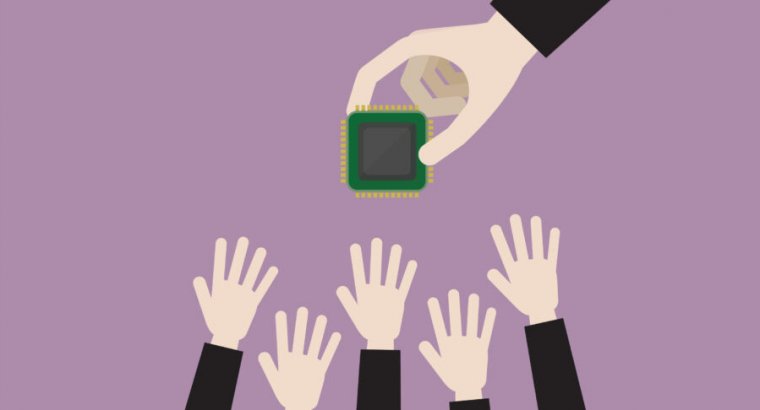
Enlarge / Sure, it’s cheaply produced clip art… but it’s also a disturbingly accurate picture of the current state of supply and demand in the semiconductor product market. (credit: tommy via Getty Images)
2021’s infamous chip shortages aren’t only affecting automakers. In a post-earnings conference call Tuesday, Apple CEO Tim Cook said, “We’ll do everything we can to mitigate whatever circumstances we’re dealt”—a statement that likely means the company will ration its chip supplies, prioritizing the most profitable and in-demand items such as iPhones and AirPods, at the expense of less profitable and lower-demand items.
CFRA analyst Angelo Zino told Reuters that Cook’s somewhat cryptic statement “largely reflects the timing of new product releases”—specifically, new iPhone releases in September. Counterpoint Research Director Jeff Fieldhack speculates from the flip side of the same coin, saying the company will likely direct supply chain “pain” to its least lucrative products. “Assuming Apple prioritizes the iPhone 12 family, it probably affects iPads, Macs, and older iPhones more,” Fieldhack said.
Processor manufacturer AMD has also been carefully managing its supply chain in response to pandemic-induced shortages. With flagship products that finally outperform rival Intel’s, AMD is focusing on the more profitable high end of the market while leaving the economy segment—until a few years ago, its strongest performer—to Intel. “We’re focusing on the most strategic segments of the PC market,” CEO Lisa Su told investors on a conference call.
